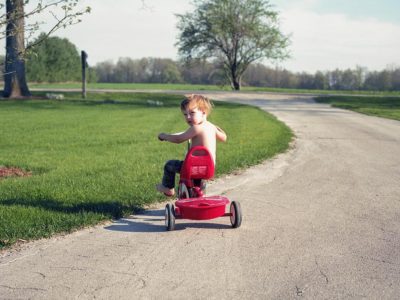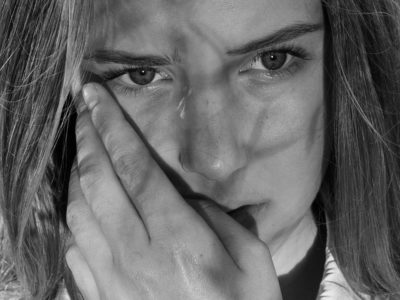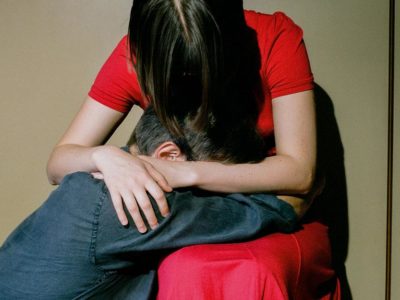Russian Masters and their Servants
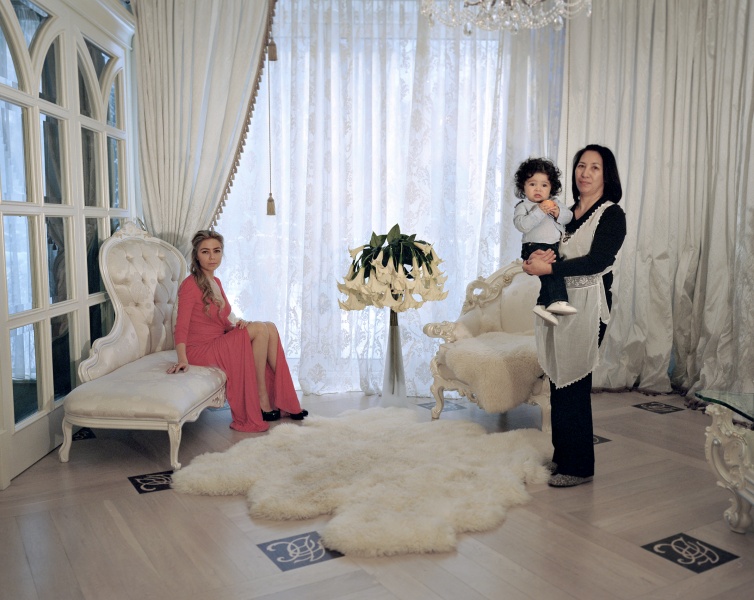
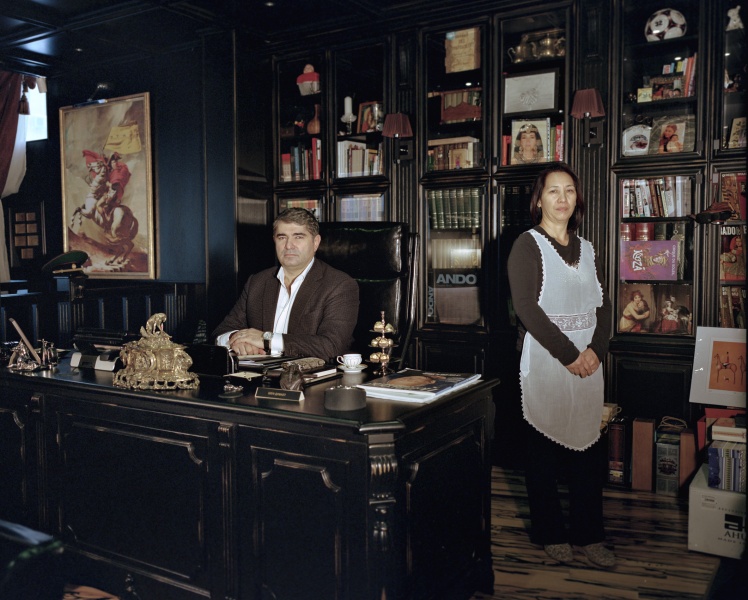
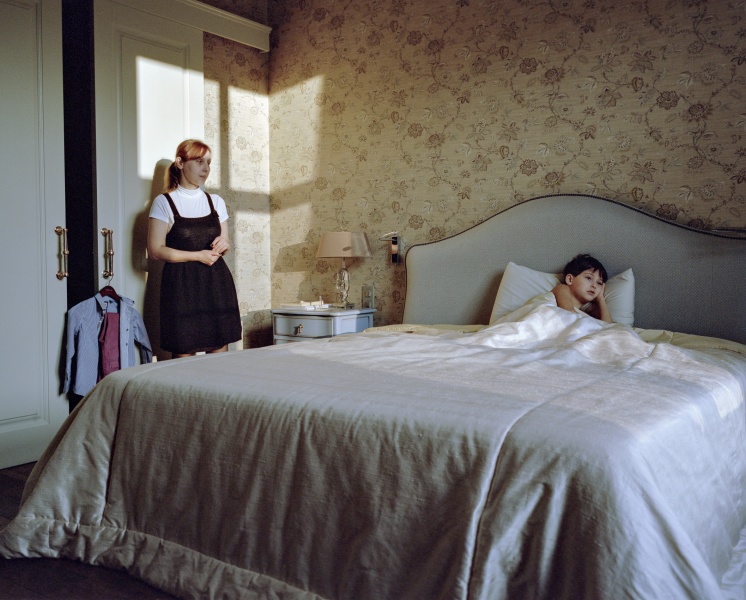
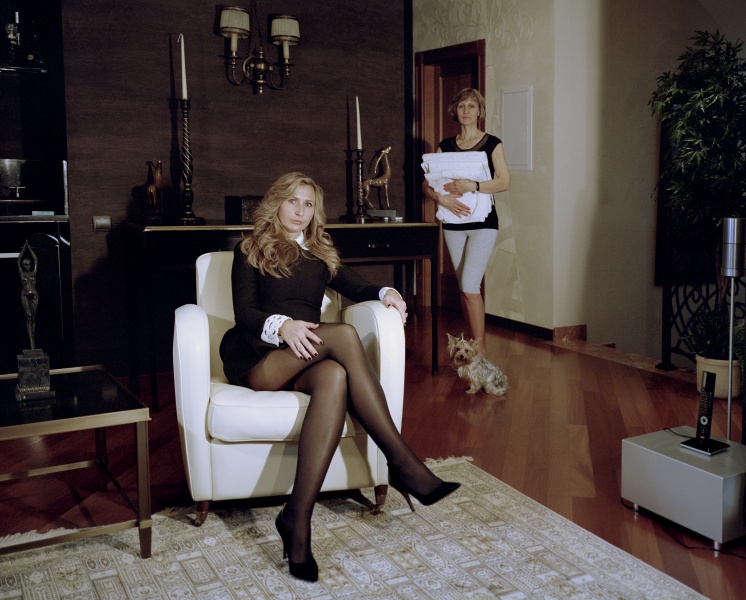
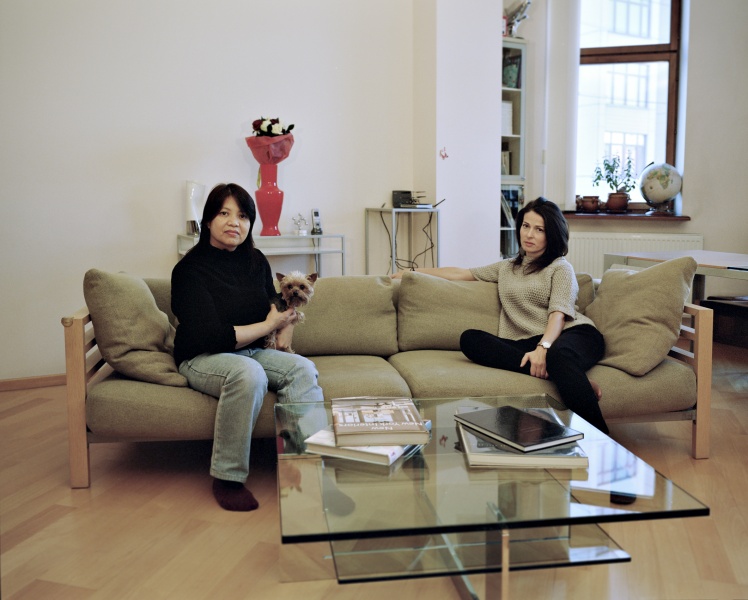
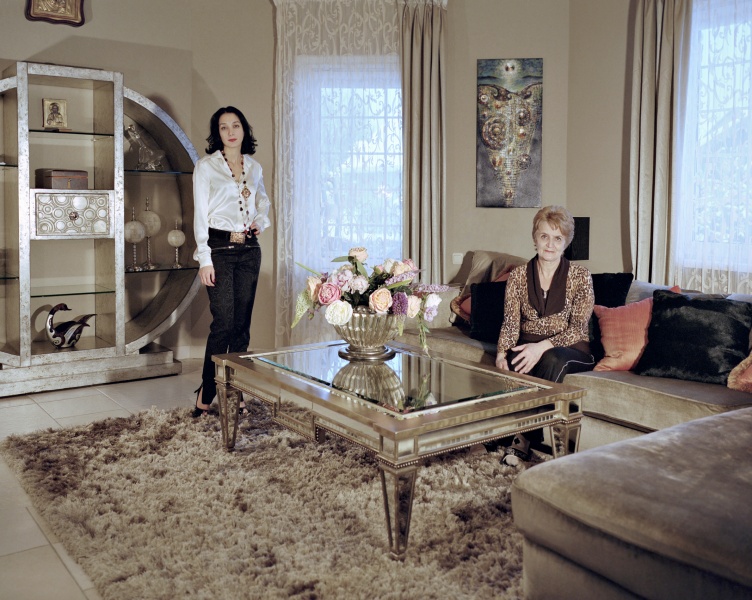
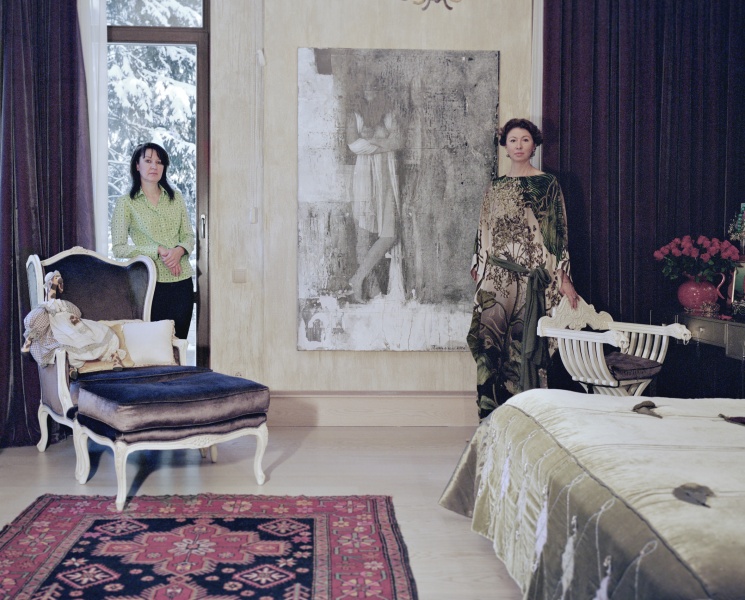
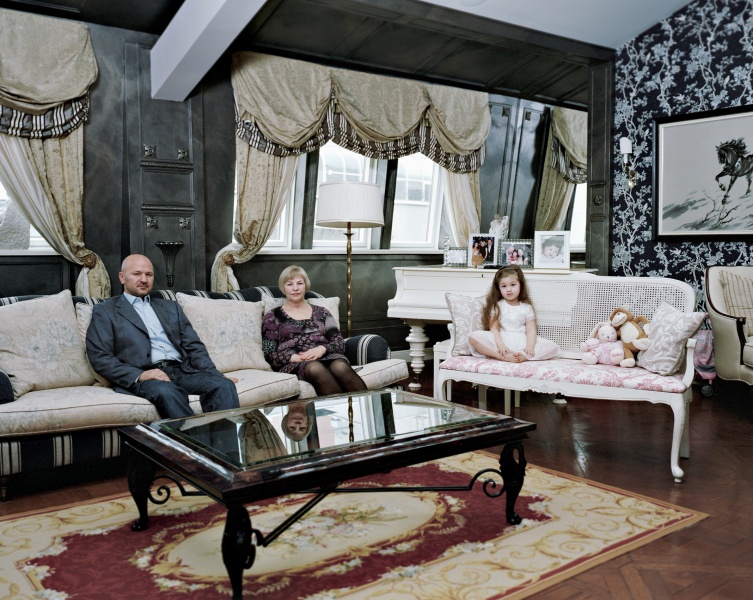
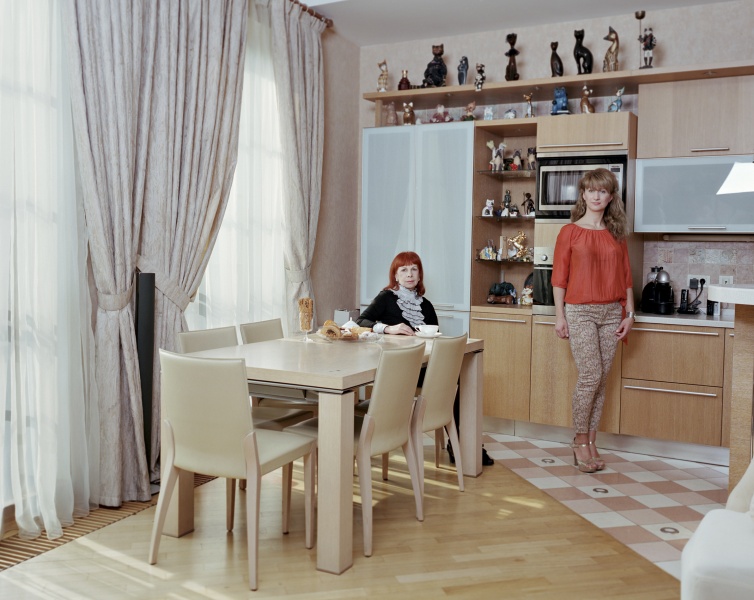
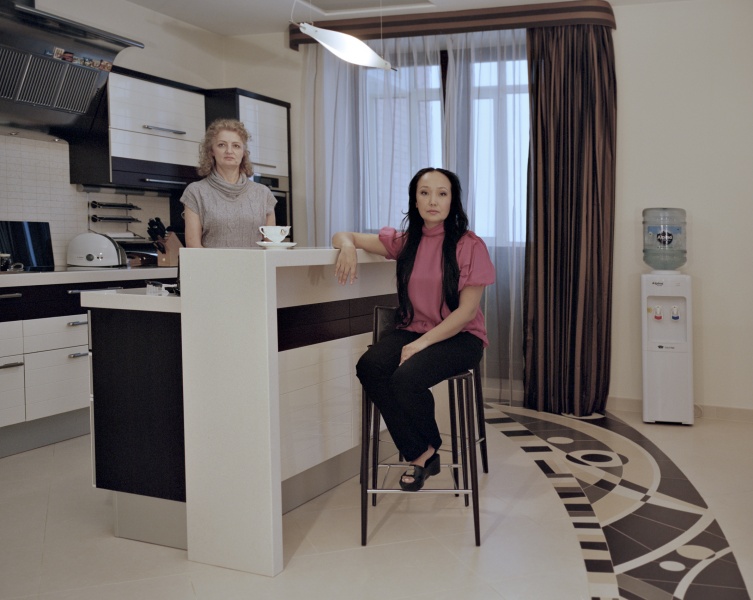
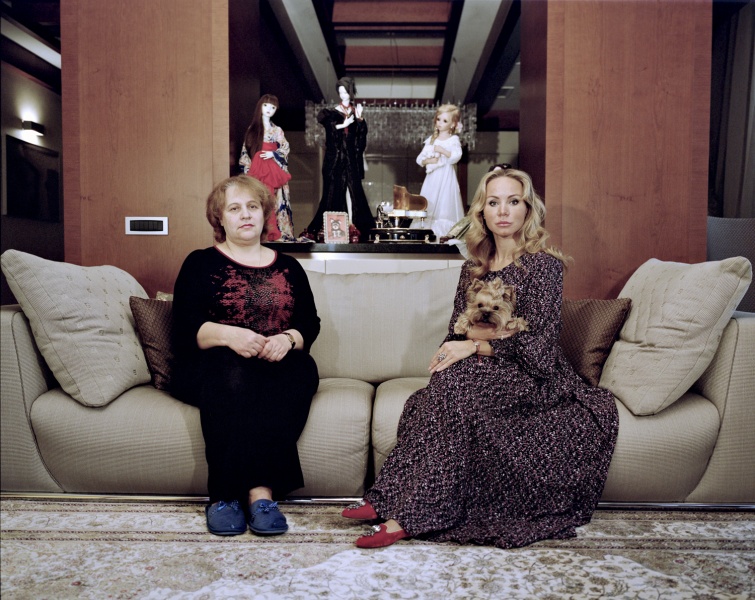
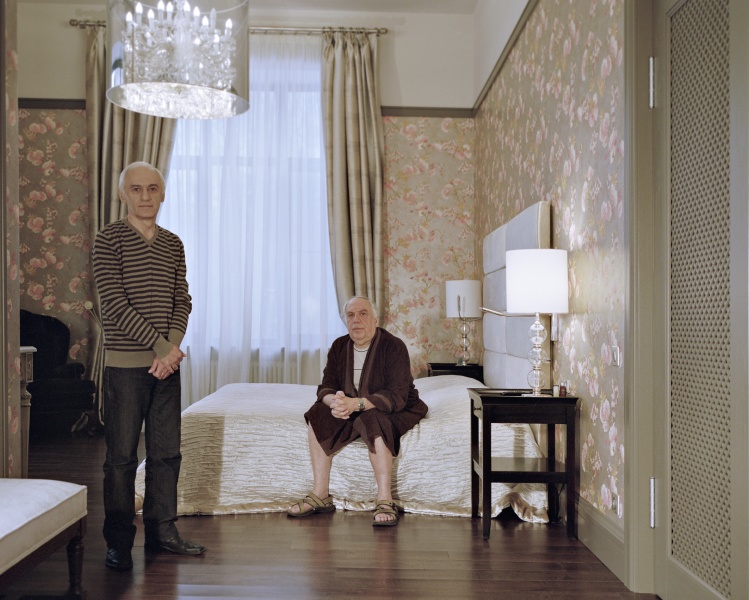
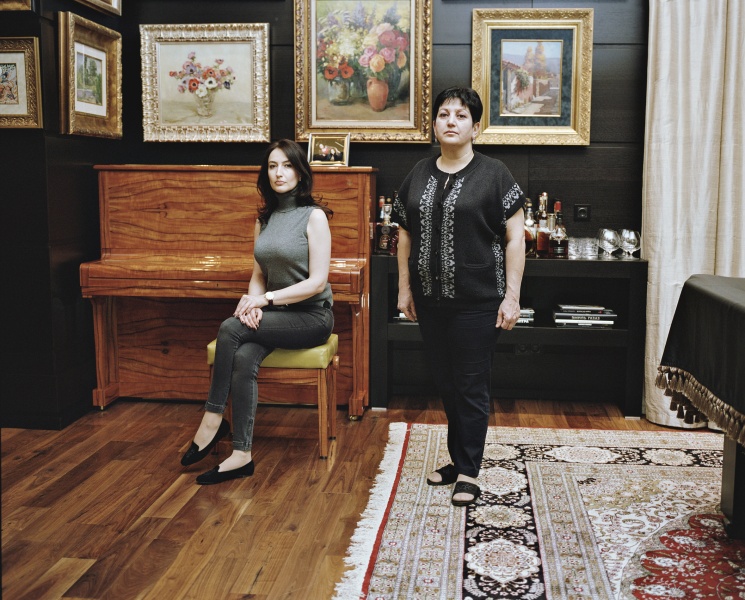
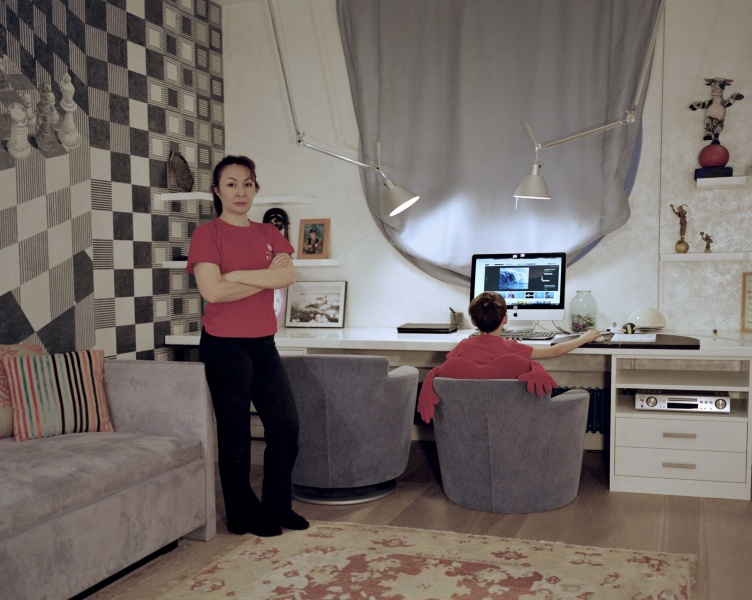
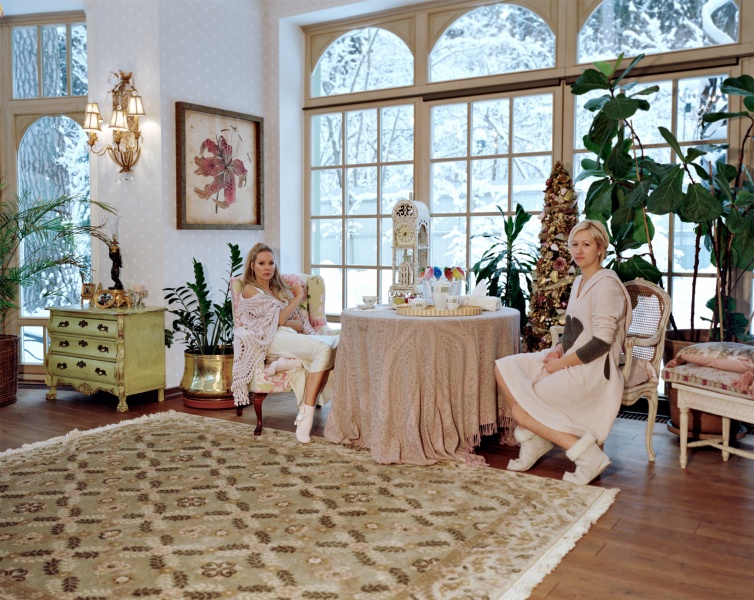
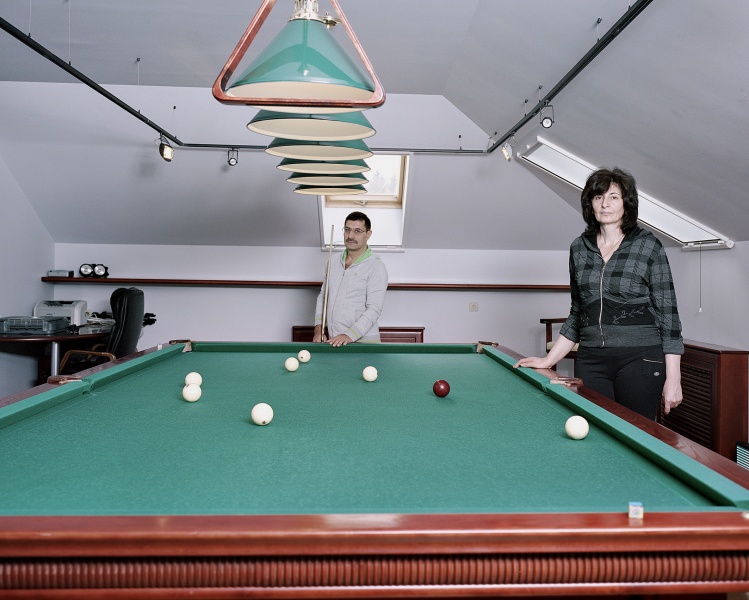
Lilia Li-Mi-Yan is a Turkmen photographer living and working in Moscow since 1991. First trained as a ballet dancer, Lilia picked up photography only at a later point in her life, but her experiences with dancing might explain the centrality of the body and corporeality across most of her projects.
For her series Masters and Servants, Lilia made staged portraits of Russian men and women sitting along their servants in what is their home for the former, and the workplace for the latter.
Hello Lilia, thank you for this interview. What are your main interests as a photographer?
The light and dark sides of my personality are reflected in my projects. I have documentary work that I publish without the fear of offending anyone’s morals; but my dark side also drives me to create projects that may shock the viewer. I treat this type of material carefully, and only show it to people who I think are ready to see it!
What is Masters and Servants about in particular?
To me it is a social documentary project that allows the audience to take a peek inside a closed world.
What inspired you to make the Masters and Servants series?
A lot of the people I am surrounded by have their own staff – maids, cleaners, babysitters. Nowadays it is common to have people who help you, if you can afford it.
When I was little, my grandmother was ill and she needed someone to look after her. In those days, my mom couldn’t find a caregiver, and it wasn’t a money problem. Back then, working as a caregiver was not deemed prestigious, and it was believed that uneducated people took this job. Today, former teachers, engineers, doctors, etc. become caregivers. Each of them has their own reasons for switching jobs. Usually it is the missed opportunity of fitting into the dramatically transformed reality of a wrecked country.
With Masters and Servants, I tried to see what has changed in their minds and souls, how they feel about their new status.
Can you describe how you approached your subjects during the making of the portraits?
My project consists of staged portraits. I met and discussed the work with my subjects in advance, so I already had an idea of what I wanted to achieve before the shooting. I had long conversations with my subjects, in their homes, in which I asked about their roles as employers and employees, how their status made them feel, and what their relationships looked like. This information really helped me in deciding how to stage the portrait.
Choose a photograph from Masters and Servants and share with us something we can’t see in the picture.
In the process of shooting almost every family had their own amusing stories. Talking about them would be inappropriate, for the project itself and for its participants. Entrance to this inner world was very thin and somewhat intimate.
One amusing incident associated with the project was that one of the leading Russian TV channels offered to dedicate a whole program about my project, but it was compulsory for both me and my subjects to appear and get interviewed. Of course I refused!
Mention the skill that you think is most critical in the education of a photographer.
In my opinion it is important for a photographer to know how to observe and grasp what is happening around you, and subsequently to capture it proficiently in their photographs.
If you could change or improve one thing about the photography industry, what would it be?
I would encourage photographers to work more with analog photography. There is nothing better than film, but unfortunately, for many reasons, my colleagues reject it.
Describe your photographic diet.
My photographic diet is a constant and insatiable web browsing to see what is going on the world of photography, plus going to museums and watching movies.
Do you have any other passion besides photography?
Photography is my only true passion, but I have many hobbies such as books, dancing, movies and being with people.
Choose your #threewordsforphotography.
Happiness. Film. Fun.
Keep looking...

FotoCal — Photography Awards, Grants and Open Calls Closing in June 2025

FotoCal — Photography Awards, Grants and Open Calls Closing in May 2025

FotoCal — Photography Awards, Grants and Open Calls Closing in April 2025

FotoCal — Photography Awards, Grants and Open Calls Closing in March 2025

FotoCal — Photography Awards, Grants and Open Calls Closing in February 2025

FotoCal — Photography Awards, Grants and Open Calls Closing in January 2025

FotoCal — Photography Awards, Grants and Open Calls Closing in December 2024

